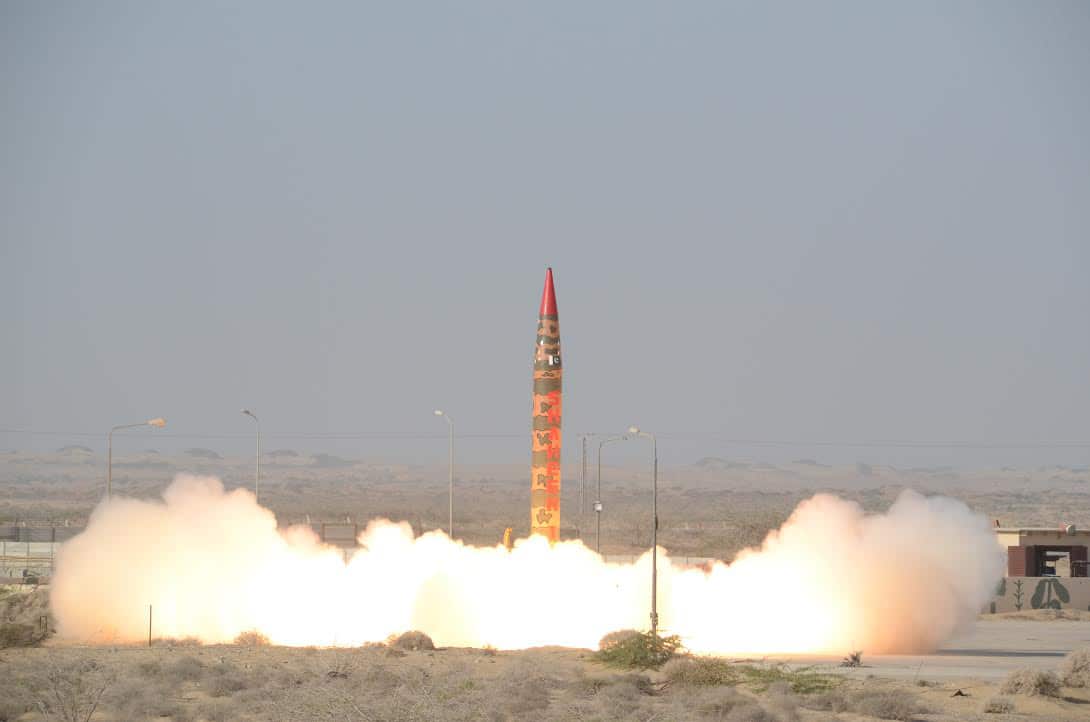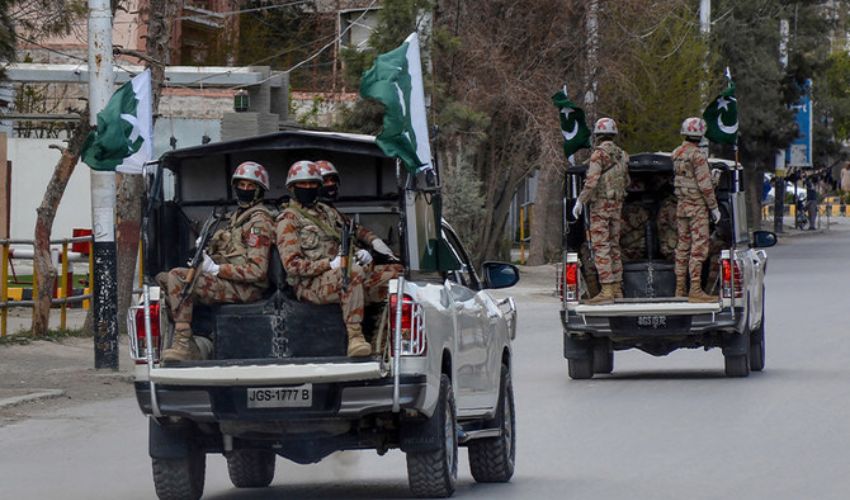PTBP Web Desk
The United States announced on Wednesday new sanctions targeting Pakistan’s long-range ballistic missile program. These measures, introduced by the State Department, focus on the National Development Complex (NDC), a state-owned defense agency, and three Karachi-based firms—Affiliates International, Akhtar and Sons Private Limited, and Rockside Enterprise.
According to a statement from State Department spokesperson Matthew Miller, the sanctions fall under an executive order designed to curb the proliferation of weapons of mass destruction (WMD) and their delivery systems. The measures aim to disrupt activities related to Pakistan’s missile program, freezing US-based assets of the targeted entities and prohibiting American citizens from engaging in business with them.
The NDC, headquartered in Islamabad, oversees the development of Pakistan’s ballistic missile capabilities. It has reportedly sought components for long-range missile programs and equipment for missile testing.
The NDC is instrumental in developing the Shaheen missile series, which is nuclear-capable, according to the Bulletin of the Atomic Scientists. This family of missiles underscores Pakistan’s strategic defense capabilities and its role in the regional arms race.
The sanctions also target three companies operating in Karachi:
- Affiliates International
- Akhtar and Sons Private Limited
- Rockside Enterprise
These entities are accused of collaborating with the NDC to procure sensitive equipment and materials for missile development.
The sanctions are part of a broader US strategy to address the proliferation of WMDs globally. In September 2024, the State Department imposed similar restrictions on a Chinese research institute and other companies for allegedly supplying components to Pakistan’s missile program.
State Department spokesperson Matthew Miller reaffirmed the US commitment to counter proliferation activities, stating, “The United States will continue to act against proliferation and associated procurement activities of concern.”
The Pakistani Ministry of Foreign Affairs criticized the sanctions, calling them politically motivated and biased. Ministry spokesperson Mumtaz Zahra Baloch argued that similar actions in the past were based on mere suspicion and involved items not listed under any export control regimes.
“These listings are often overly broad and lack substantive evidence, undermining their credibility,” Baloch added.
The sanctions have significant diplomatic and economic implications:
- Impact on Pakistan’s Defense Sector:
By targeting the NDC and its affiliates, the sanctions could disrupt the procurement of critical components needed for missile development, potentially delaying progress in Pakistan’s defense capabilities. - Economic Consequences:
Freezing assets and barring US business engagements could strain these entities’ operations and international trade prospects. - Diplomatic Strain:
The sanctions add to existing tensions between Pakistan and the US, particularly in defense and non-proliferation matters.
Pakistan’s ballistic missile program plays a critical role in its national defense strategy, particularly in maintaining a balance of power in South Asia. The Shaheen series of missiles, developed under the NDC, symbolizes Pakistan’s deterrence capability in a region marked by rivalries and security challenges.
While the US insists the sanctions are aimed at preventing the proliferation of WMDs, Pakistan views them as politically motivated and discriminatory. This development reflects the ongoing challenges in global non-proliferation efforts, particularly when geopolitical considerations intersect with security imperatives.
The sanctions also underscore the complexity of US-Pakistan relations, where cooperation on counterterrorism and regional stability often coexists with disagreements on strategic issues.




